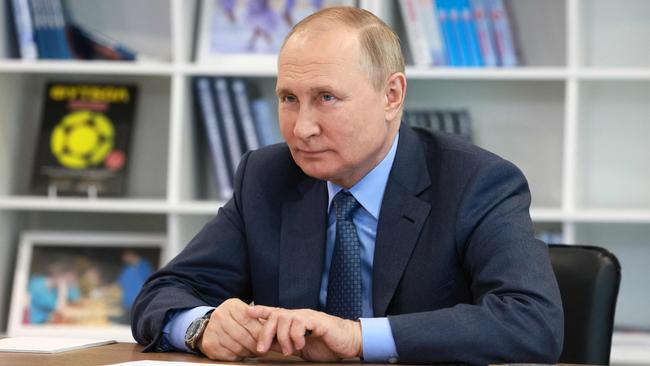
The pictures coming out of Ukraine are dystopian. Nightmare vistas stripped of greenery, of life. Cinematic in the intensity of the destruction. It’s a feast of lustful, vengeful oblivion and it’s History, now. The grim past rushing at us, once again, as we realise with horror this is our present and our future too. Oh Europe, Europe. Again? We thought we’d moved beyond those astonishing World War II images of great cities reduced to rubble, but no. Ah mankind, how petty and ridiculous and shortsighted you are, amid all the wonder of what you’ve achieved.
All those names seared into our planet’s annals of horror. Genghis Khan. Hitler. Mussolini. Stalin. Idi Amin. Mao. Pol Pot. And now of course Putin. History has shown us that overconfidence is an important factor in initiating war, and it’s borne out by Putin’s hubris. Locked away in his palace, surrounded by a flattery of gerontocrats, thinking he can illegally invade another country and seize it within days. Does he care for human life, this man who would not have his own family fighting this barbaric war? Putin would argue that history is telling him there’s a destiny to fulfil, and fulfil it he must. He’s deluded, and the world suffers as a result.
Overconfidence is something women rarely suffer from. Kaja Kallas, the first female Prime Minister of Estonia, recently spoke to The Times and speculated that the Ukrainian invasion might never have happened if a woman had been in charge of the Kremlin: “Maybe it’s very sexist, but I’m going to say it: if you’ve given birth to human life, taking away the life of another mother’s child is just so cruel.” A mother of one, she spoke of her admiration for the book The Better Angels of Our Nature by Steven Pinker. “There’s one chapter there about if there are female leaders, there’s less violence. I absolutely agree.” I would venture that women are more used to compromise, to backing down for the sake of peace, to giving way – because we spend our whole adult lives doing it. If more women were in power, would the world be a different place?
Recently I rewatched that charming little Aussie film The Dish. A celebration of the wonder of the moon landing, a profoundly moving feat of human ingenuity and co‑operation. What extraordinary things we can do as a species. Our then prime minister, John Gorton, was invited by NASA to send a message with the astronauts to be left on the moon in a time capsule. Gorton’s missive read in part: “This is a dramatic fulfilment of man’s urge to go ‘always a little further’, to explore and know the formerly unknown; to strive, to seek, to find, and not to yield. May the high courage and the technical genius which made this achievement possible be so used in the future that mankind will live in a universe in which peace, self-expression, and the chance of dangerous adventure are available to all.”
And now, Putin. So small, juvenile, isolated. Holding the world to ransom because of his nuclear weapons. Meta’s chief operating officer, Sheryl Sandberg, suggested recently that Russia and Ukraine wouldn’t be at war if women were in charge: “No two countries run by women would ever go to war,” she declared. Is it because we’re less cavalier with human life? More risk averse? Christine Lagarde, former head of the International Monetary Fund: “If Lehman Brothers had been Lehman Sisters, it would’ve been a different world now.” And if Putin had been a woman, would the world be a different place now?




Who are we, really, as a species? We humans, capable of so much ingenuity and beauty, yet we have a world right now held hostage by one man’s ego. His overweening pride, his petulant refusal to back down, and his ridiculous, megalomaniacal frailty poses a threat to us all.